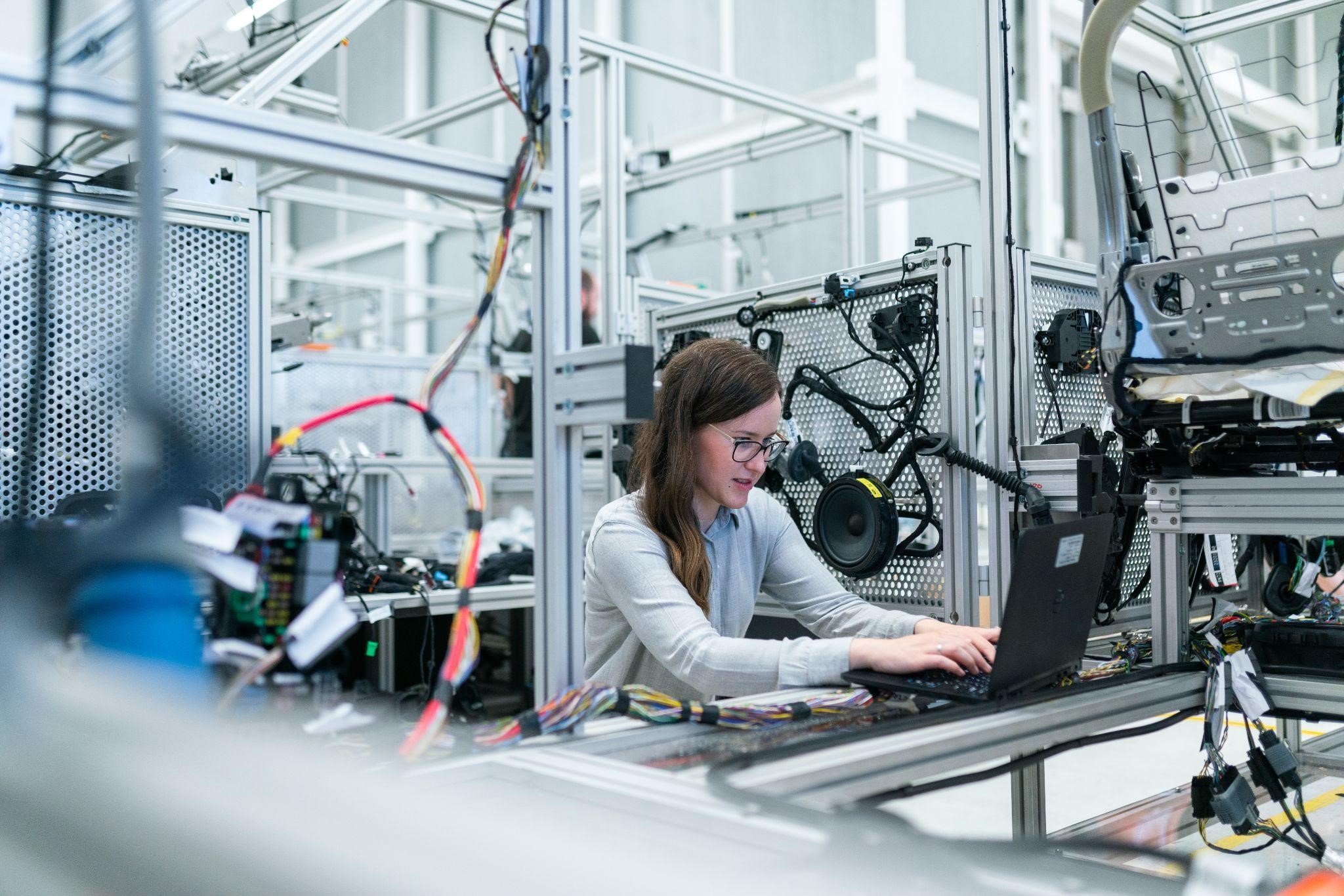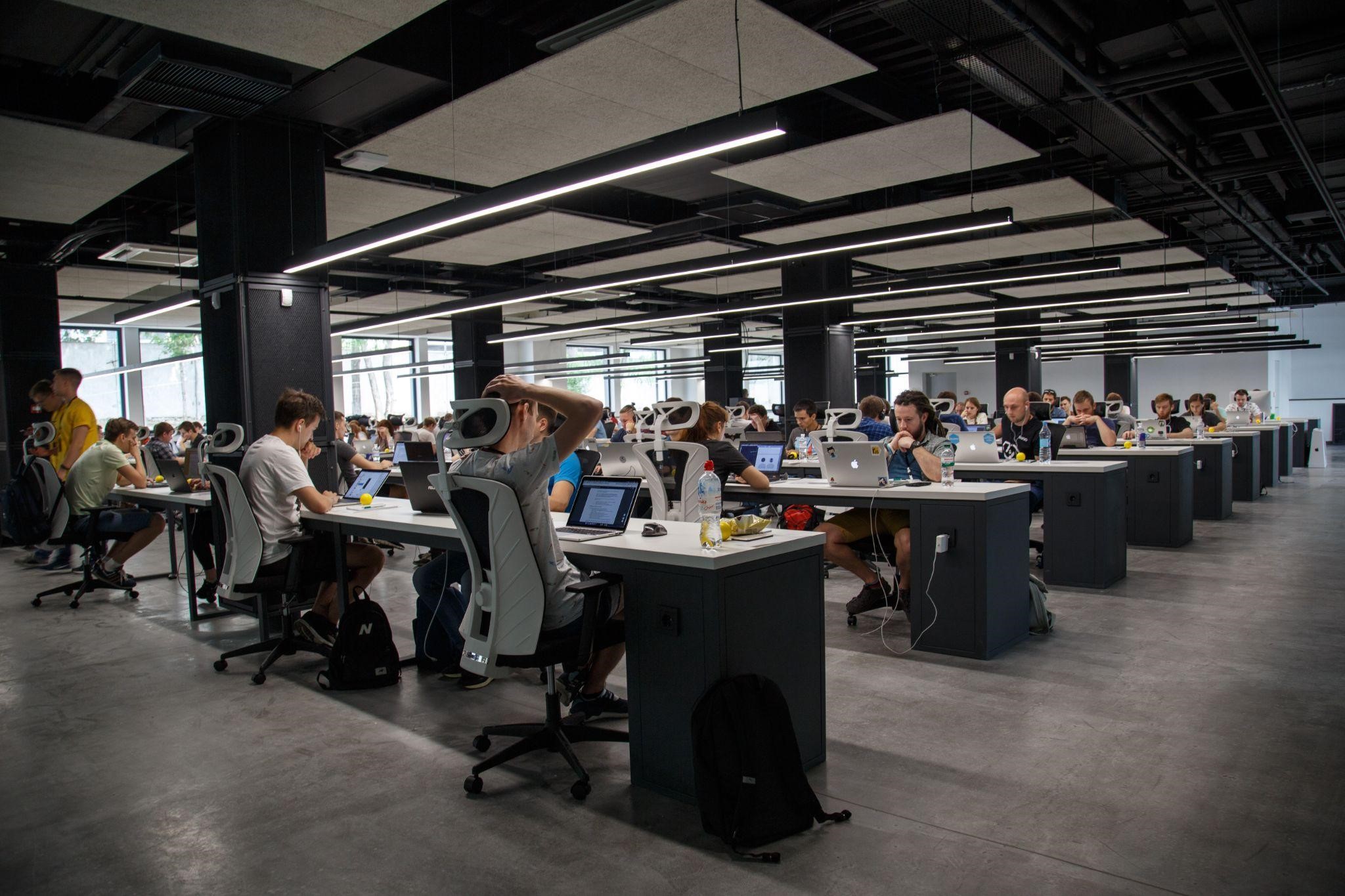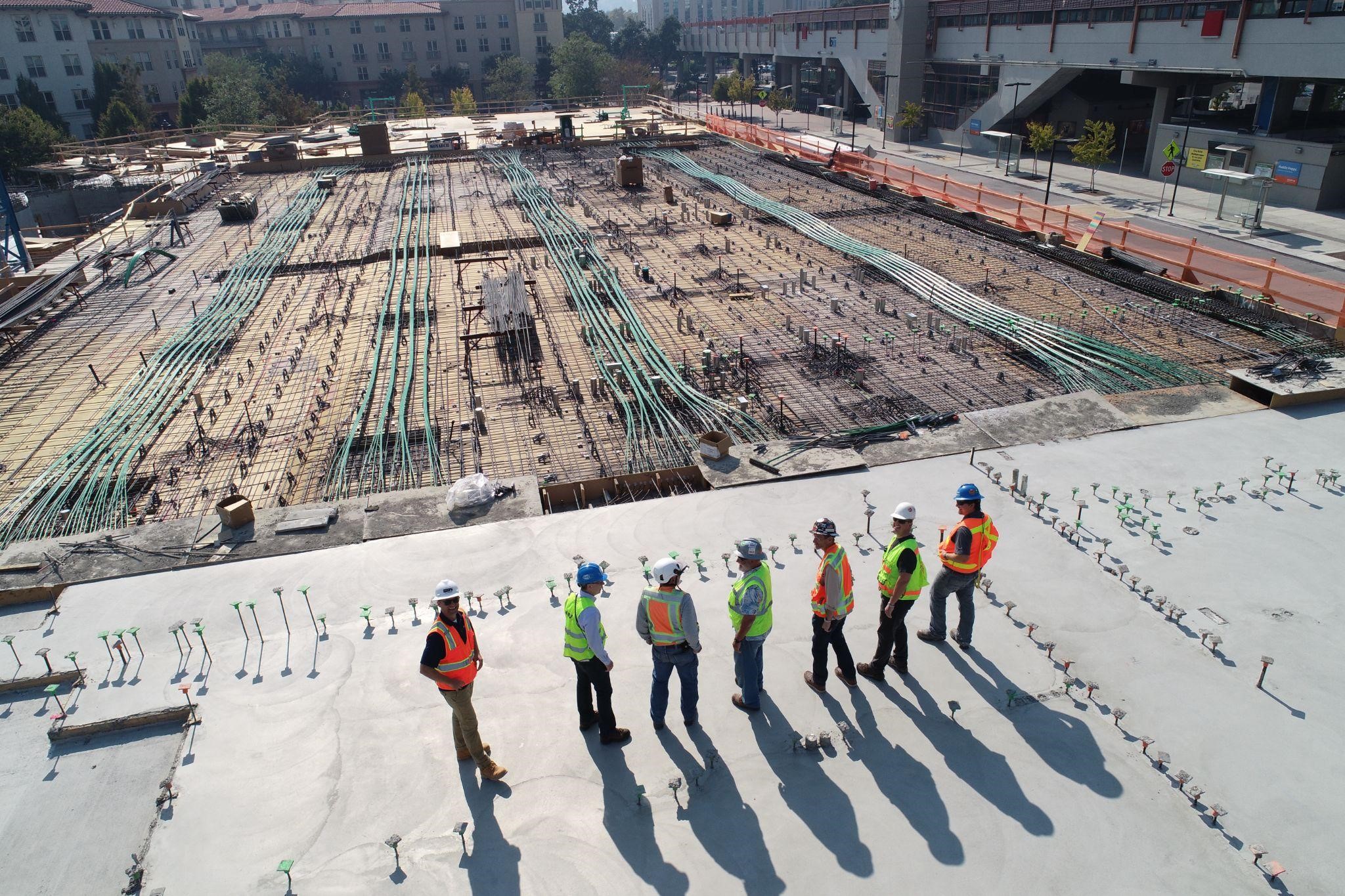Technology has rapidly transformed the construction industry in recent years, integrating various digital tools and software solutions.
Construction management, in particular, has significantly shifted towards adopting technology to improve efficiency, reduce costs, and enhance overall project performance.
Construction estimating software has become integral to the construction industry, allowing construction managers to create accurate cost estimates and project budgets.
As per statistical data, more than 233,000 construction managers are presently working in the United States, and many of them have embraced estimating software for construction to streamline their operations.
This software has enabled them to automate the estimation process, minimize errors, and reduce the time spent on repetitive tasks. Technology has revolutionised how construction projects are managed, from project planning and scheduling to communication and collaboration.
This article will explore seven (7) benefits of using technology in construction management and how it can help streamline processes, increase productivity, and ultimately deliver successful projects. For More information Please Visit My Website Fox Business Markets.
1. INCREASED PRODUCTIVITY
Using technology in construction management can boost productivity. Construction managers can automate many tasks and streamline their processes with tools like project management software, mobile apps, and cloud-based platforms.
This frees up more time to focus on other essential aspects of the project. Plus, with better scheduling and resource allocation, technology can help identify potential delays and minimize risks. All of this adds up to increased productivity and better project outcomes.
Construction managers can also benefit from real-time data and insights technology solutions provide. For example, project management software can track progress and provide detailed reports, allowing managers to quickly identify issues and take corrective action.
According to the Bureau of Labor Statistics, there is a projected growth of 11% in construction employment from 2016 to 2026.
In addition, technology can facilitate better communication and collaboration among team members, including architects, engineers, contractors, and subcontractors. This can improve coordination and reduce misunderstandings, leading to better project outcomes.
Furthermore, the use of technology can also help construction managers stay on top of industry trends and regulations, ensuring compliance with safety and environmental standards.
For instance, Building Information Modeling (BIM) software allows construction managers to create virtual models of buildings and structures, helping to identify potential design flaws before construction begins.
2. IMPROVED SAFETY
The construction industry is inherently risky, with potential hazards ranging from falls and accidents to exposure to harmful substances. According to a report by the National Safety Council, the construction industry has one of the highest rates of work-related fatalities and injuries in the United States.
However, technology solutions such as wearables and drones can help reduce these risks by providing real-time monitoring and data analysis.
Wearables, such as smart helmets and vests, can track workers’ vital signs, location, and movements and alert management to potential safety concerns. They can also detect hazardous gases and chemicals, providing early warnings and preventing exposure.
On the other hand, drones can survey job sites from above and capture high-resolution images and video, allowing managers to identify potential safety hazards and take corrective action.
Moreover, virtual reality (VR) technology can create immersive simulations of construction sites, allowing workers to practice safety protocols and emergency procedures in a risk-free environment. This can help reduce accidents and injuries by better-preparing workers for potential hazards on the job.
3. BETTER LABOR MANAGEMENT
Technology solutions such as time-tracking software and payroll systems can help managers accurately monitor employee hours and pay rates, reducing errors and minimizing disputes.
Moreover, project management software can facilitate better communication and collaboration between managers and workers, allowing for more efficient scheduling and resource allocation. This can help reduce downtime and delays, resulting in faster project completion times and reduced labor costs.
In addition, technology can help managers optimize their workforce by identifying areas where additional training or personnel may be needed, as well as areas where labor costs can be reduced. This can result in more efficient and effective labor management, leading to better project outcomes and increased profitability.
4. ENHANCED COLLABORATION
Effective collaboration is essential in any construction project, and technology can significantly enhance cooperation between team members.
Construction managers and their teams can communicate and collaborate more efficiently with tools like project management software, cloud-based platforms, and mobile apps.
According to a recent study, 91% of contractors and owners share the view that enhanced collaboration can mitigate risks on construction projects.
Project management software, for example, can allow multiple team members to access and update project information in real-time, improving communication and collaboration.
Cloud-based platforms can provide a centralized location for project documents, allowing team members to access the most up-to-date information and reduce the risk of errors. Mobile apps can also enable team members to access project information and collaborate on the go, even from remote locations.
In addition, technology can facilitate better collaboration with external stakeholders, such as clients, architects, and contractors. Video conferencing tools and virtual reality software can allow team members to collaborate in real-time, regardless of their physical location. This can help reduce the need for in-person meetings, saving time and money.
5. MOBILE APPS AND SOFTWARE
Mobile apps and software are game-changers in the construction industry. They offer loads of benefits for construction managers and their teams, including the ability to access project information and communicate with team members from virtually anywhere.
According to a survey, in 2019, 21% of respondents reported using three apps related to construction, while in 2020, 22% of respondents stated that they used six or more construction-related apps.
With mobile apps, construction pros can access project plans, schedules, and documents on-the-go. No more lugging around heavy binders or searching for outdated project files. Plus, instant messaging features make it easy to communicate with team members in real-time, whether they’re on the job site or in the office.
Project management software takes things to the next level. These solutions provide a centralized hub for project information, enabling seamless collaboration between team members.
Updates to project plans and schedules can be made in real-time, and data analytics tools can help identify potential issues before they become problems. And with features like digital forms and automated workflows, paperwork is a thing of the past.
The bottom line is that mobile apps and software can help construction managers streamline their workflows, improve communication, and reduce costs. By adopting these technologies, construction pros can stay ahead of the curve and deliver better projects, faster.
6. MACHINE LEARNING AND ARTIFICIAL INTELLIGENCE
Machine learning and artificial intelligence (AI) are two increasingly relevant technologies in the construction industry. Machine learning refers to the ability of computers to learn from data and make predictions or decisions based on that learning. AI refers to the ability of computers to perform tasks that typically require human intelligence, such as decision-making, perception, and natural language processing.
In the construction industry, machine learning and AI can automate tasks, reduce errors, and improve decision-making. For example, machine learning algorithms can analyze data from sensors on construction sites to identify potential safety hazards or predict when equipment might fail. AI-powered software can also be used to automate tasks like scheduling and material ordering, reducing the time and effort required by construction managers.
According to market research, the global market for artificial intelligence in construction was worth $496 million in 2021, and is expected to reach $9 billion by 2031. However, the success rate for AI projects in the construction industry is not yet fully optimized, as only 65% of construction companies have reported success in their AI initiatives so far.
AI and machine learning can also improve project planning and scheduling. Machine learning algorithms can identify patterns and predict future projects by analysing data from previous projects. This can help construction managers make more accurate schedules and budget estimates, reducing the risk of delays and cost overruns.
Another area where AI and machine learning can be valuable is quality control. These technologies can analyze data from sensors and cameras to identify defects in materials and workmanship. By catching issues early, construction managers can avoid costly rework and ensure that projects are completed to the highest standards.
7. OFFSITE CONSTRUCTION
Offsite construction, also known as modular construction or prefabrication, involves manufacturing building components offsite in a controlled factory environment, and then assembling them on the construction site. This approach offers several advantages over traditional onsite construction methods.
First, offsite construction can significantly reduce project timelines. Because building components are manufactured in a controlled environment, weather-related delays or other disruptions are less likely. This allows construction managers to plan and execute projects more efficiently, reducing the overall construction timeline.
Offsite construction can also improve quality and safety. Building components are manufactured to precise specifications in a factory environment, where quality control measures can be closely monitored. This results in fewer errors and defects in the finished product, reducing the risk of safety hazards and improving the overall quality of the construction project.
Another benefit of offsite construction is the potential for cost savings. Because building components are manufactured in a controlled environment, materials can be purchased in bulk, reducing costs. The streamlined manufacturing process can also reduce waste and improve efficiency, leading to cost savings over traditional onsite construction methods.
CONCLUSION
To wrap it up, technology is seriously changing the construction management game. It’s making life easier for construction companies and project managers in a ton of ways.
With increased productivity, better safety, improved labor management, and enhanced collaboration, it’s no wonder that so many companies are jumping on the tech bandwagon.
Many new technologies are being adopted in the construction industry, from mobile apps and software to machine learning and artificial intelligence. And let’s not forget about offsite construction, which is revolutionizing the way buildings are made.
Sure, there may be some challenges when it comes to integrating new technologies into construction management, but the benefits are well worth the effort. With technology on their side, construction managers can stay ahead of the competition, streamline their operations, and deliver high-quality projects on time and within budget.
So, if you’re in the construction industry, don’t be afraid to embrace technology. By doing so, you’ll be setting yourself up for success and helping to drive innovation in this exciting and ever-evolving field.







